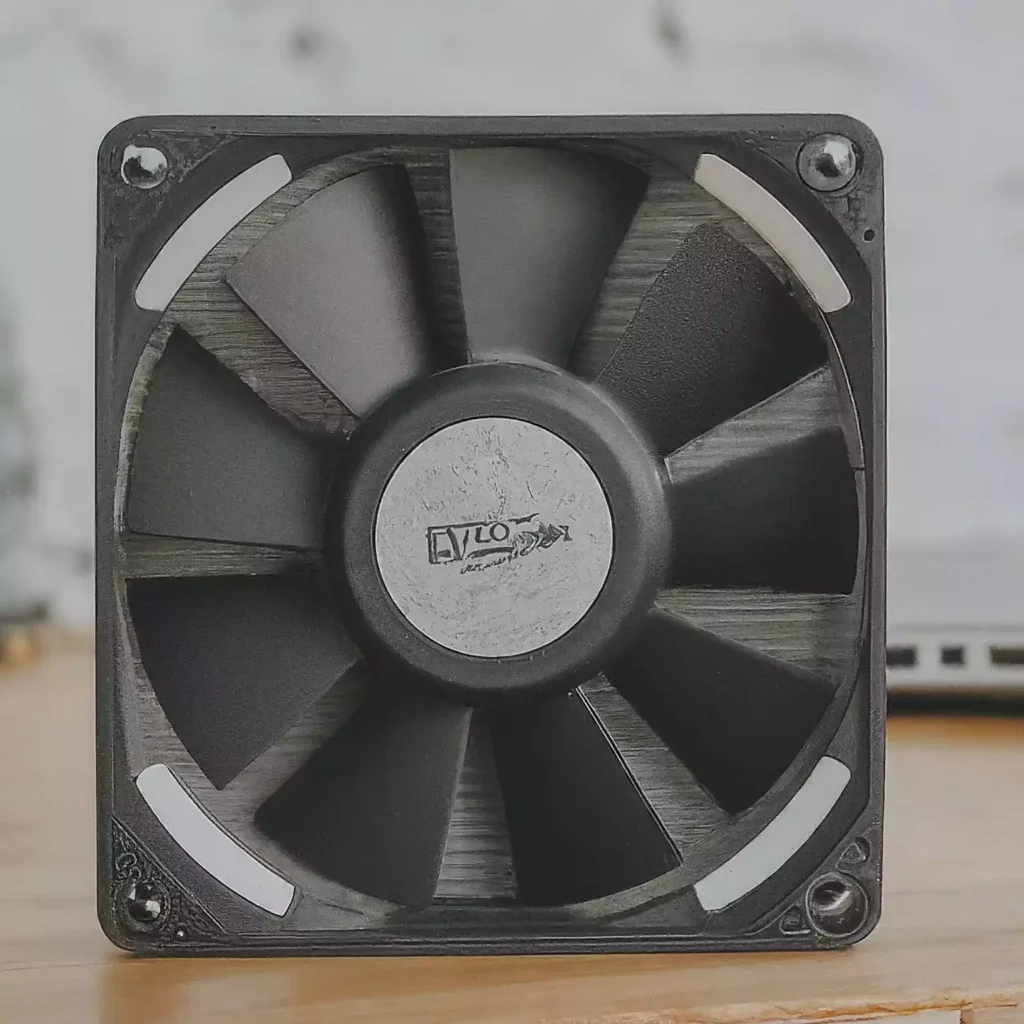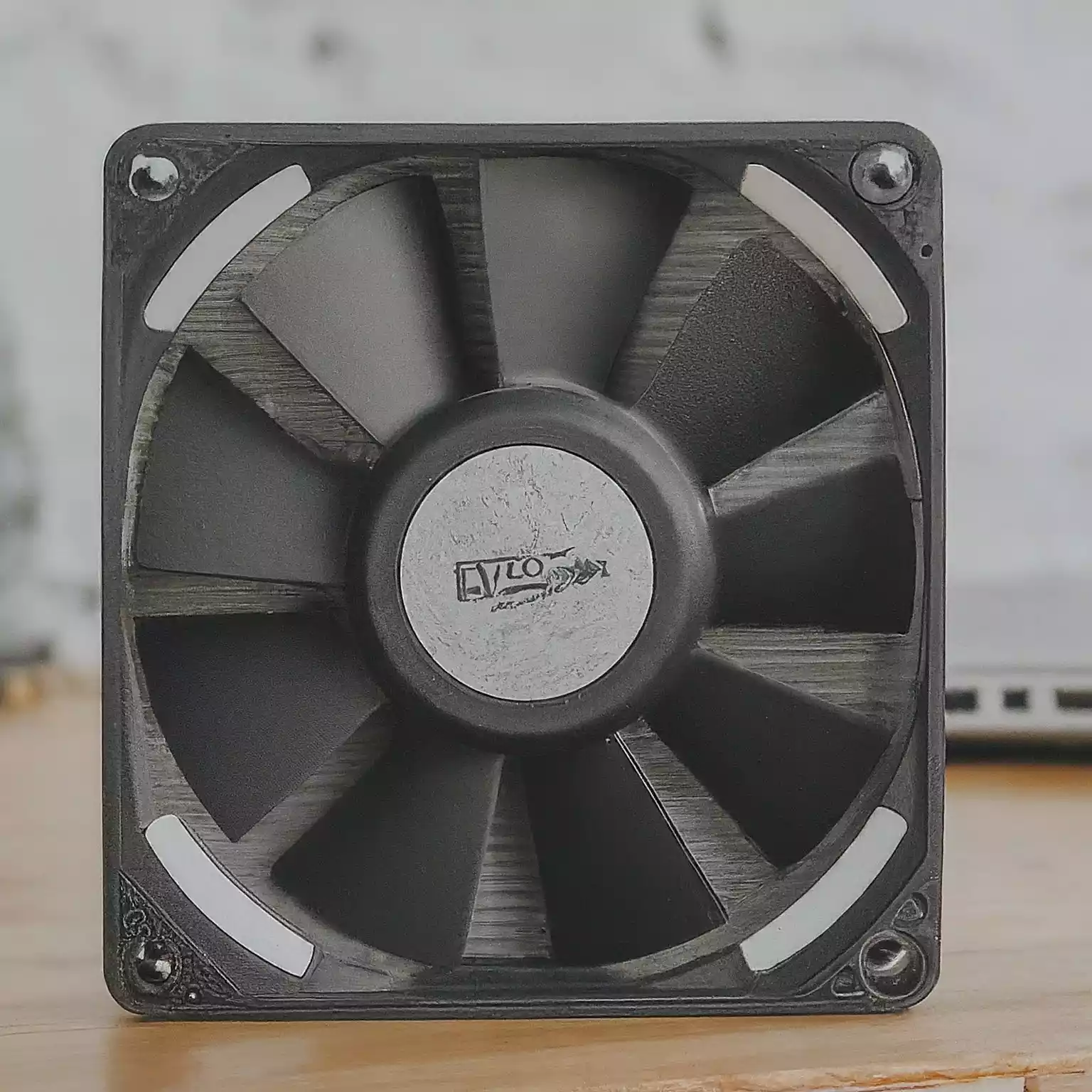Last updated on February 25th, 2025 at 09:09 pm
Can’t find the right HP fan replacement? Discover if HP CPU fan motors are universal or modelspecific. Learn about sizes, compatibility, troubleshooting, and more
Do All HP Laptops Use the Same CPU Fan?
Let’s clear the air right away: no, not all HP laptops use the same CPU fan. It’s a common misconception, and I’ve seen many frustrated folks trying to jam an incompatible fan into their beloved HP machine.
Why CPU Fans Are Your HP Laptop’s Best Friend
First, let’s talk about why these little guys are so important. Your HP laptop’s Central Processing Unit (CPU) is like its brain, and it works hard. Like any hard worker, it gets hot underpressure. That’s where the CPU fan comes in – it’s the unsung hero that keeps your laptop cool and prevents it from overheating. A steady flow of air is essential for optimalperformance. If your CPU fan isn’t up to snuff, you might experience sluggishness, crashes, or even permanent damage.

One Size Does Not Fit All
Now, back to the fan itself. HP offers a wide array of laptops, from sleek ultrabooks to powerful gaming rigs. Each model has different cooling needs based on the specific CPU, graphics card, and overall design. A fan that works perfectly for an HP Pavilion might be completely inadequate for an HP Omen. That’s why HP doesn’t use a one-size-fits-all approach. They carefully engineer fan motors for specific models, taking into account factors like airflow, noise levels, and power consumption.
So, before you rush to buy a replacement fan, it’s crucial to know which one is compatible with your particular HP laptop. In the next section, we’ll guide you through the process of identifying your fan and measuring it correctly. But first, let’s dive into the common fan sizes you might encounter in the world of HP laptops.
Common HP Fan Motor Sizes and How to Measure Yours
Okay, now that we’ve established the importance of choosing the right fan, let’s get down to brass tacks. The first step is to identify your HP laptop model. This is usually printed on a sticker on the bottom of your laptop or in the system information. Once you know your model, you can start looking for compatible fans.
But wait, there’s more! Before you hit that “Buy Now” button, you need to measure your existing fan to ensure you get the right size. Here’s how to do it:
- Unscrew and remove the back panel of your laptop: Be sure to power off your laptop and disconnect any power cables before you start. Refer to your laptop’s manual or online resources for specific instructions on how to open it safely.
- Locate the CPU fan: It’s usually near the CPU heatsink, which is a metal block with fins.
- Measure the fan dimensions: You’ll need to measure the fan’s length, width, and thickness. Use a ruler or calipers for accuracy. Pay attention to the unit of measurement (usually millimeters).
- Note the connector type: Check the type of connector on your fan’s cable.
- Check for any additional markings: Some fans may have markings or labels indicating their model number or specifications. This can be helpful when searching for a replacement.
Once you have all this information, you can start your search for a compatible fan.
Now, you might be wondering, what are the common fan sizes found in HP laptops? Here’s a quick rundown:
- 30mm to 40mm: Often used in ultraportable laptops with low-power CPUs.
- 45mm to 55mm: Common in mainstream laptops with mid-range CPUs.
- 60mm to 70mm: Typically found in high-performance laptops and gaming laptops with powerful CPUs and dedicated graphics cards.
- 80mm and above: These are less common in laptops but may be found in some desktop replacements.
Remember, this is just a general guideline. The actual fan size in your HP laptop may vary depending on the model and specific configuration. Always measure your existing fan to be sure.
HP CPU Fan Compatibility: What You Need to Know Before Buying a Replacement
Alright, you’ve measured your fan, and you’re ready to find a replacement. But before you hit that “Add to Cart” button, let’s talk about compatibility.
Compatibility vs. Interchangeability
First, it’s important to understand the difference between compatibility and interchangeability. Compatibility means that a fan will work with your laptop without causing any damage or issues. Interchangeability, on the other hand, means that you can swap out your existing fan for a different one without any modifications.
While some HP laptop fans may be interchangeable, it’s not always the case. Even if two fans have the same dimensions, they might have different voltage requirements, connector types, or mounting configurations. That’s why it’s crucial to check all the compatibility factors before making a purchase.
Key Compatibility Factors
Here are the main things to look out for when choosing an HP CPU fan replacement:
- Voltage and current requirements: The voltage and current rating of the new fan should match the specifications of your laptop’s motherboard. Using a fan with the wrong voltage can damage your laptop.
- Pin configuration and connector type: The connector on the fan’s cable should match the connector on your laptop’s motherboard. Most HP laptop fans use 3-pin or 4-pin connectors, but the pin arrangement might vary.
- Mounting and screw hole alignment: The new fan should have the same mounting points and screw hole alignment as your existing fan. Otherwise, you might have trouble installing it.
How to Find a Compatible Fan
Now that you know what to look for, here are some resources to help you find a compatible HP CPU fan:
- HP’s Official Website: HP’s Parts Store is a great place to start. You can search for your laptop model and find a list of compatible parts, including fans.
- Online Retailers: Many online retailers sell HP laptop fans. Be sure to read the product descriptions carefully and check the compatibility information before you buy.
- HP Fan Compatibility Charts: Some websites and forums offer compatibility charts that list compatible fans for various HP laptop models. These can be helpful if you’re having trouble finding the right fan.
Remember, choosing the right fan is crucial for your laptop’s health and performance. Don’t rush the decision, and be sure to research thoroughly before buying a replacement. In the next section, we’ll discuss some common HP fan problems and how to troubleshoot them.
troubleshooting Your HP CPU Fan: A DIY Guide to Silence and Coolness
Is your HP laptop sounding like a jet engine lately? Or maybe it’s been shutting down unexpectedly due to overheating? Don’t panic just yet – your CPU fan might be the culprit. Fortunately, many fan-related issues can be tackled with some simple troubleshooting steps.
Common HP Fan Problems: The Usual Suspects
Before we dive into troubleshooting, let’s identify some common fan-related problems you might encounter:
- Loud Noises: A grinding, whirring, or rattling noise could indicate a failing fan bearing or dust buildup.
- Inconsistent Speeds: If your fan spins erratically or stops altogether, it could be due to a loose connection, a faulty sensor, or a worn-out motor.
- Fan Error Messages: Some HP laptops display error messages when the fan malfunctions. This could be a BIOS error or a hardware issue.
- Overheating: If your laptop feels hot to the touch or shuts down unexpectedly, a malfunctioning fan is a likely suspect.
DIY Troubleshooting: Let’s Get Our Hands Dirty
Now, let’s roll up our sleeves and try to fix those fan woes.
- Check for Dust: Dust is the arch-nemesis of CPU fans. Over time, it can accumulate and clog the fan blades, hindering airflow and causing noise. If you’re feeling adventurous, you can also open up your laptop and clean the fan with a soft brush.
- Verify Connections and Voltage: Make sure the fan’s cable is securely connected to the motherboard. You can also use a multimeter to check the voltage at the fan connector. It should match the fan’s rated voltage.
- Update Your BIOS: Sometimes, a BIOS update can fix fan-related issues. Check HP’s website for the latest BIOS update for your laptop model and follow the instructions carefully.
- Replace the Fan: If none of the above steps work, it might be time for a new fan. Remember to choose a compatible fan based on the tips we discussed in the previous section.
FAQs About HP CPU Fan Motors
Let’s tackle some common questions that might be swirling around in your head about those hardworking HP CPU fan motors:
Q: Are HP laptop fans interchangeable?
A: Not always. While some HP laptops may share fan sizes, compatibility depends on a few crucial factors: voltage, connector type, and mounting style. It’s best to check the specifications of your specific model and the replacement fan before assuming they’re a match made in heaven.
Q: Can I use a different brand fan for my HP laptop?
A: Technically, you could. However, it’s not recommended. HP-branded fans are designed and tested to work seamlessly with your laptop’s cooling system. Using a third-party fan might lead to compatibility issues, reduced performance, or even damage to your motherboard. Play it safe and stick with HP-approved replacements.
Q: How often should I replace my HP laptop fan?
A: There’s no hard and fast rule here. The lifespan of an HP CPU fan depends on various factors, such as usage intensity, environmental conditions, and the fan’s quality. If your fan is noisy, malfunctioning, or causing overheating, it’s time for a replacement. As a general rule of thumb, if your laptop is several years old and the fan is showing signs of wear and tear, it’s a good idea to proactively replace it to prevent future problems.
Q: Can I upgrade my HP laptop fan for better cooling?
A: In most cases, no. HP laptops are designed with specific cooling systems, and upgrading the fan is usually not possible without significant modifications. You’re typically limited to replacing the fan with the same model or a compatible one. However, some laptops may have aftermarket cooling solutions available, but these often require technical expertise to install and may void your warranty.
Conclusion: Finding the Right HP Fan for Optimal Cooling
There you have it, folks! We’ve delved into the world of HP CPU fan motors, from their vital role in keeping your laptop cool to the nuances of compatibility and troubleshooting. Remember, not all HP fans are created equal, so it’s crucial to choose the right one for your specific laptop model.
By following the tips and guidelines we’ve discussed, you can confidently select a replacement fan that will keep your HP laptop running smoothly and quietly for years to come. Don’t let a faulty fan ruin your productivity or gaming sessions. Take charge of your laptop’s health and ensure it stays cool under pressure.
If your HP laptop fan is acting up, don’t hesitate to troubleshoot or seek professional help if needed. A well-functioning fan is a small investment that can save you from costly repairs and headaches down the road.






